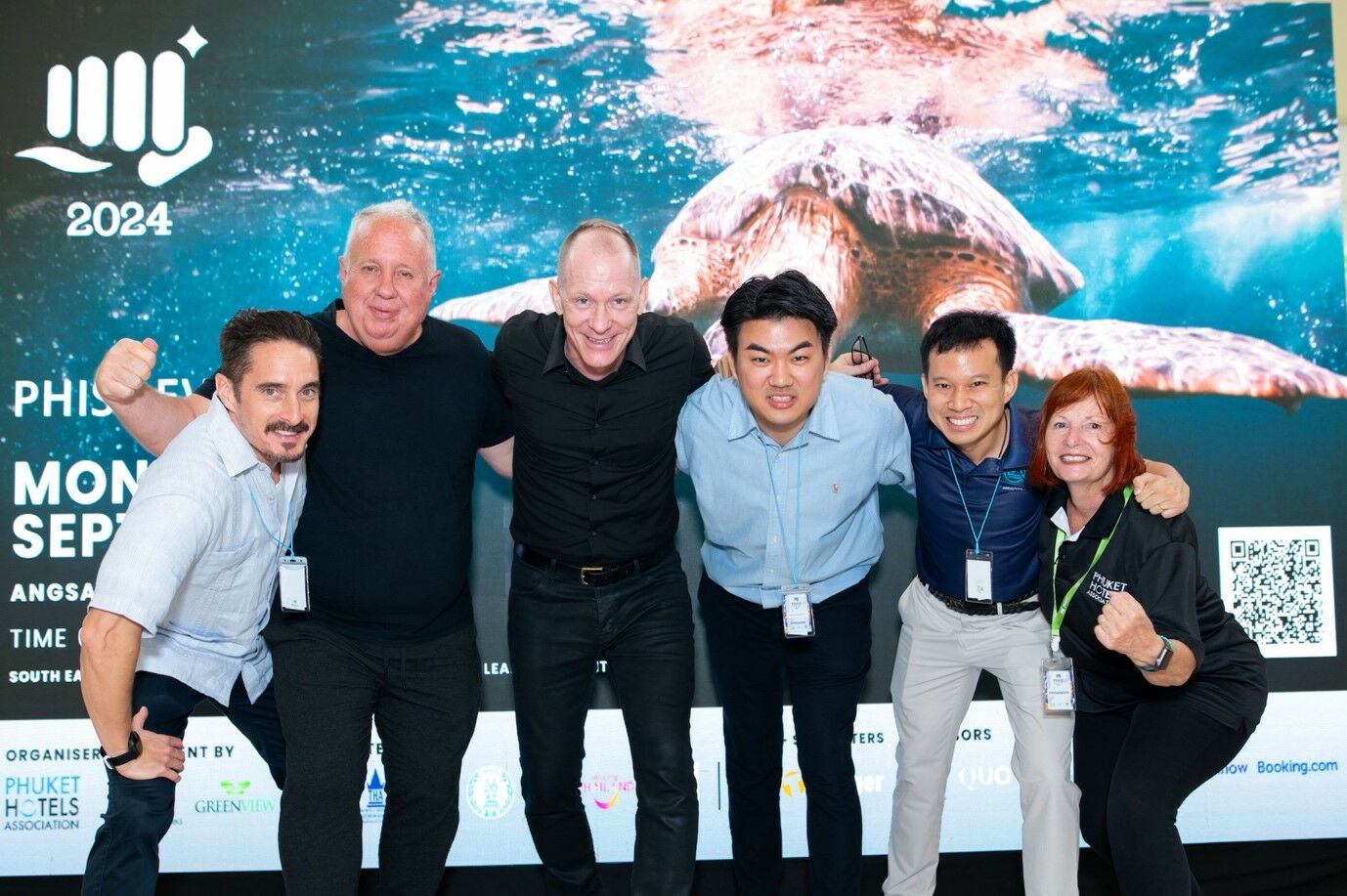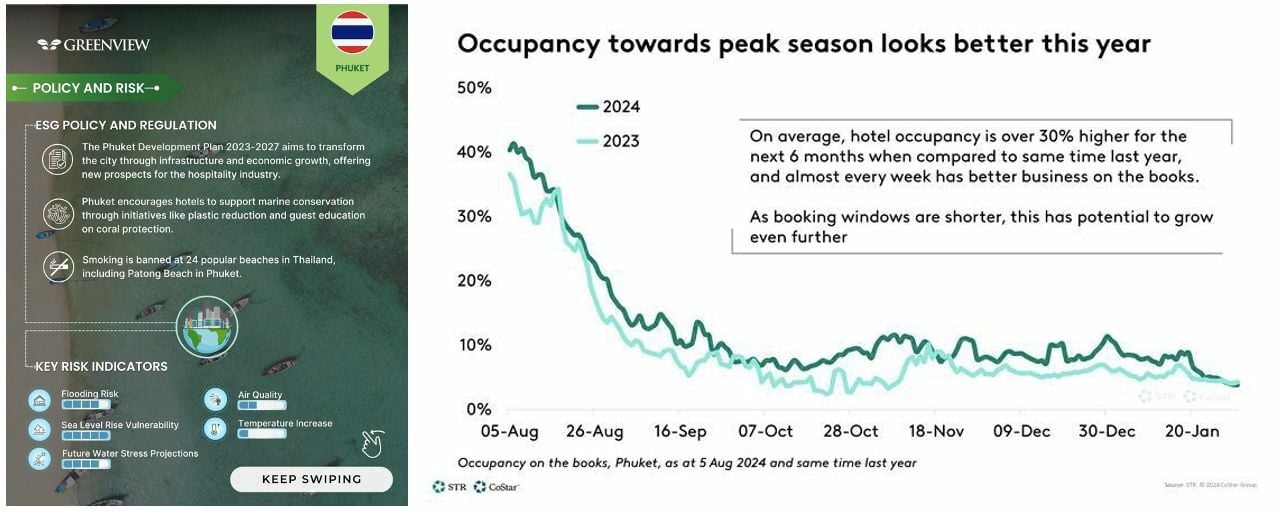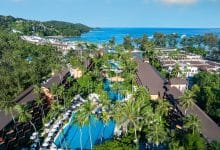PHIST 2024 calls for sustainable development in Thailand

“They paved paradise and put up a parking lot,” Joni Mitchell once sang—a line that now eerily echoes the over-development plaguing Thailand’s top tourist hotspots. With the recent catastrophic floods in Phuket raising alarm bells, are these disasters a grim glimpse of the future? And is anyone paying attention to the growing environmental crisis?
These questions took centre stage at the Phuket Hotels for Islands Sustaining Tourism(PHIST), Southeast Asia’s biggest sustainability event for the travel and hospitality sectors, which returned yesterday, September 2, to spark conversation and drive a green agenda. At this year’s event, tourism leaders called for an urgent sustainable development masterplan in Thailand’s idyllic islands.
Over-development and over-tourism are global issues, as evidenced by recent anti-tourism protests in Spain. But with Thailand bracing for 80 million international visitors by 2027, the challenges facing the kingdom are all too real. The lack of a coordinated plan that integrates environmental solutions into infrastructure development could have a disastrous impact on Thailand’s destinations in future.
In Phuket for example, hospitality consulting group C9 Hotelworks revealed that the once-quiet beachfront community of Bangtao now has a pipeline of more than 10,000 residential units, more than double its existing supply. The report even refers to this once-remote coastal strip as an “emerging metropolitan area.”
Data from global hotel performance group STR reveals how the island is experiencing a visitor boom, with forecasted average occupancy at Phuket’s hotels 30% higher in the ramp-up period of August 2024 to January 2025, compared to 12 months ago.
Meanwhile, Singapore-based environmental expert Greenview has warned that Phuket faces a high risk from sea-level rise, flooding, and water stress. These threats are already being realised. The island is still reeling from the deadly floods and landslides that swept through the popular tourist areas of Kata and Karon in August, said Bill Barnett, Managing Director of C9 Hotelworks and co-founder of PHIST.
“After years of warnings about the potential impact of climate change, this year we have witnessed its devastating effect. The recent floods in Phuket could have been avoided with better-quality infrastructure. We cannot continue to pave over paradise; we must take a coordinated approach to planning that puts sustainability at the top of the tourism agenda.”
What is the next move?

So, what is the answer? Can a coordinated approach to tourism and infrastructure development help places like Phuket mitigate the inevitable effects of climate change? Can local government officials incorporate elements such as sustainable design, electric transport, and environmental protection into their development plans? And how can private sector companies become part of the long-term solution, while also satisfying the soaring demand from their customers?
At PHIST 2024, more than 1,000 delegates learnt about the latest key issues and challenges facing island communities in Southeast Asia, and Thailand in particular, as well as discovering potential solutions and the latest green innovations. Staged at Angsana Laguna Phuket, this fast-paced single-day event featured over 20 workshops and inspiring talks designed to spark debate.
Headlining this year’s event was Peng Sum Choe, CEO of Pan Pacific Hotels Group, who has led his company to achieve Global Sustainable Tourism Council (GSTC) certification at all of its properties in Singapore. He was joined by Jesper Palmqvist, Senior Director – Asia Pacific at STR, who revealed the latest upward trends for Phuket’s hotel industry and projections for the future, and Jerawan (Blue) Srepetchdanond, a formidable green champion and director of Intrinsics.
Food quality and security are key aspects of any sustainability strategy. The Thai government recently asserted that the country should position itself as the “Kitchen of the World” due to its proliferation of fresh produce. At PHIST, Jayne MacDougall, Executive Director of the Phuket Hotels Association, revealed details of the Green Planet School Farm Project – an important initiative that is empowering the next generation of organic producers in the setting of local Thai schools.
“It’s time to plant the seeds of change, and where better to start than with education and at an early age. This is what we are striving to do with Green Planet by introducing green framing to schools throughout the island.”
PHIST 2024 is organised by the Phuket Hotels Association, with co-founding partners C9 Hotelworks and Greenview and support from the American Chamber of Commerce Thailand (AMCHAM), QUO, Creative Concept AV Thaiger Media, Brand and Delivering Asia Communications.
Latest Thailand News
Follow The Thaiger on Google News:


























